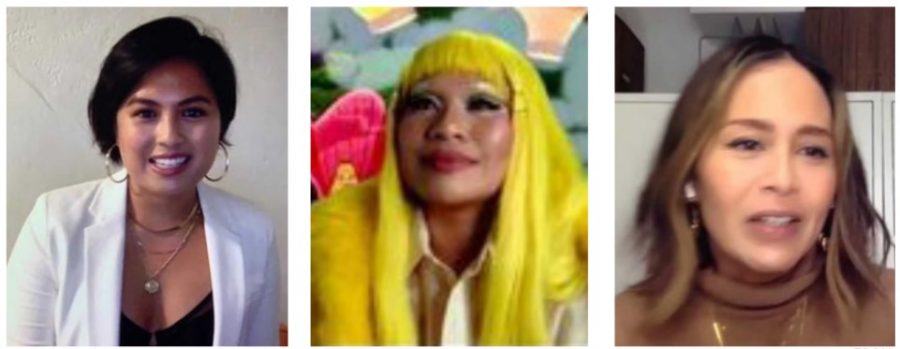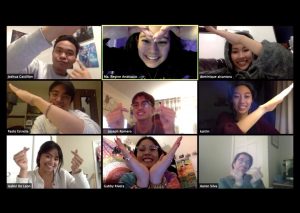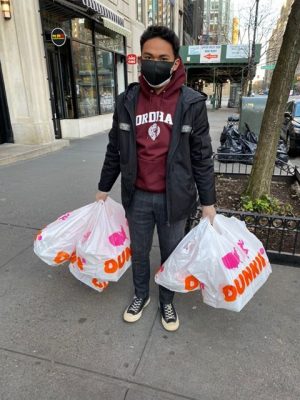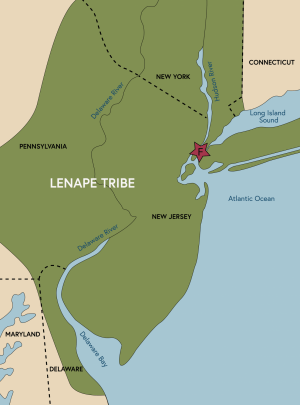FLOW Hosts Filipinos in Fashion Event
Filipino designers and drag queen spoke about community, sustainable fashion and their cultures.
ZOOM
FLOW hosted a virtual fashion event on Nov 20 with guest panelists who offered insight into their experiences with Filipino culture in the fashion industry.
December 2, 2020
Filipinos of LC Offering Welcome Club (FLOW) hosted a virtual fashion event in partnership with Columbia University’s Liga Filipina, a student club, on Nov. 20. During the event, three panelists spoke about their experiences in fashion and shared valuable advice for people interested in the industry.
Regine Anastacio, Fordham College at Lincoln Center ’21 and president of FLOW, reached out to accounts she followed on Instagram to find speakers for the event. “As a fashion studies minor, I’ve always wondered why I never really learnt about Filipino Fashion and something I’ve always been interested in was the intersectionality between Filipino Fashion and feminism.”
Under VINTA Gallery, Mangosing makes clothes inspired by her heritage, all of which are ethically and sustainably made in the Philippines.
The first speaker of the night was Caroline Mangosing, the creative director of VINTA Gallery, an ethical, e-commerce modern Filipiniana clothing brand based in Canada, reaching a global Filipino market. At the event, Mangosing detailed her journey of rediscovering her connection with Filipino culture at the Emily Carr University of Art and Design in Vancouver. This led her to start her own production company in Toronto, Canada, creating exclusively Filipino film and television content. She eventually left and founded a Filipino arts center before finally deciding to become a designer.
Under VINTA Gallery, Mangosing makes clothes inspired by her heritage, all of which are ethically and sustainably made in the Philippines. Being able to share Filipino culture is central to her work, as her goal is to expand the ideas that people have when they think of Filipino style.
“Everyone has permission to be revolutionary and walk in their power every single day.” Rona Navales, creative activist
The second speaker, Rona Navales, is a Bay Area-based creative activist, teacher, journalist and fashion producer with a focus on ethical fashion and decolonial education. She commented on the importance of events and stated that they are a great way for the Filipino community to connect through their love of fashion.
Navales explained that while fashion started off as a hobby for her, she soon realized that it kept organically coming back into her life when she needed it most. When she got the opportunity to produce a charity fashion show in the summer of 2019, she reached out to her Instagram community. Within a month, she successfully put together a team of models and photographers for the show. Navales believes she pulled it off because she overcame any doubts she had about herself. “Everyone has permission to be revolutionary and walk in their power every single day,” she said.
When Bibingka Mama started doing drag, it was just for fun, but they’ve now been able to build a community, a business and educate people on Filipino culture.
The third panelist was Bibingka Mama, a Pinay drag queen, baker, songwriter and entertainer. After moving to New York, they were embraced by a community that made them feel comfortable experimenting with fashion.
After being asked to perform a drag routine, they came up with the name Bibingka Mama — an ode to their favorite dessert, a Filipino rice cake dessert called Bibingka — and performed in drag for the first time.
They began performing regularly and realized that many people did not know what bibingka was. Attempting to educate people on their culture, they started baking bibingka and other Filipino foods and selling it to the audience during their shows.
When Bibingka Mama started doing drag, it was just for fun, but they’ve now been able to build a community, a business and educate people on Filipino culture because of it. Bibingka Mama stated that drag taught them that they could do the unthinkable. They now have bigger dreams to open their own restaurant: a drag brunch place in New York.
Bibingka Mama recently moved back to Los Angeles from New York during the pandemic and has used the time inside to learn how to edit videos. They are hoping to come back after the pandemic with more skills than before.
“Media outlets often reach out to me to speak on issues involving Filipinos and I’ve had to tell them no many times because I’m not qualified to speak on everything.” Bibingka Mama, drag queen and baker
Mangosing also took time during the pandemic to reflect. She realized the importance of expanding her reach into the Filipino community to let more people know about the business.
Navales stated that despite the cancellation of all the events she had lined up, she wasn’t discouraged. She has spent this time working on her own personal healing by going to therapy and educating herself on various social justice issues.
When asked about the cultural challenges the panelists have faced, Mangosing talked about the pressure of having to speak for all Filipinos. “Media outlets often reach out to me to speak on issues involving Filipinos and I’ve had to tell them no many times because I’m not qualified to speak on everything.”
Bibingka Mama, who doesn’t speak any Filipino languages, has been trying to educate themselves more on their culture so that they can get better at educating people outside the community on Filipino culture.
The panelists offered some words of advice, speaking on their experiences and what they have learned from them. Navales talked about making vision boards and highlighted the importance of reaching out to people and building a community.
Mangosing realized that she kept getting fired from jobs, so she decided to be her own boss, advising the audience to to “fake it till you make it.”
Bibingka Mama explains that when they found themselves at a low point in their career and marriage, they decided to say yes to any opportunity that came their way. “Tell yourself you’re a bad b—- because you are,” they said.
To close off the exciting event, Bibingka Mama played a fun video of their drag performance and Navales played a video of her fashion show from last year, showcasing a diverse group of people in beautiful outfits.
One of the guests in attendance, Lea Salonganisa, a drag queen from LA whose name is also food-inspired, said that they are a huge fan of Bibingka Mama and was glad to attend a conference featuring an influential group of Filipinos in fashion.
Anastacio was pleased with the event, stating, “Overall, I thought the event was a huge success because of how diverse and insightful the speakers were and I loved that people from different schools came and that people were so engaged and interactive!”













